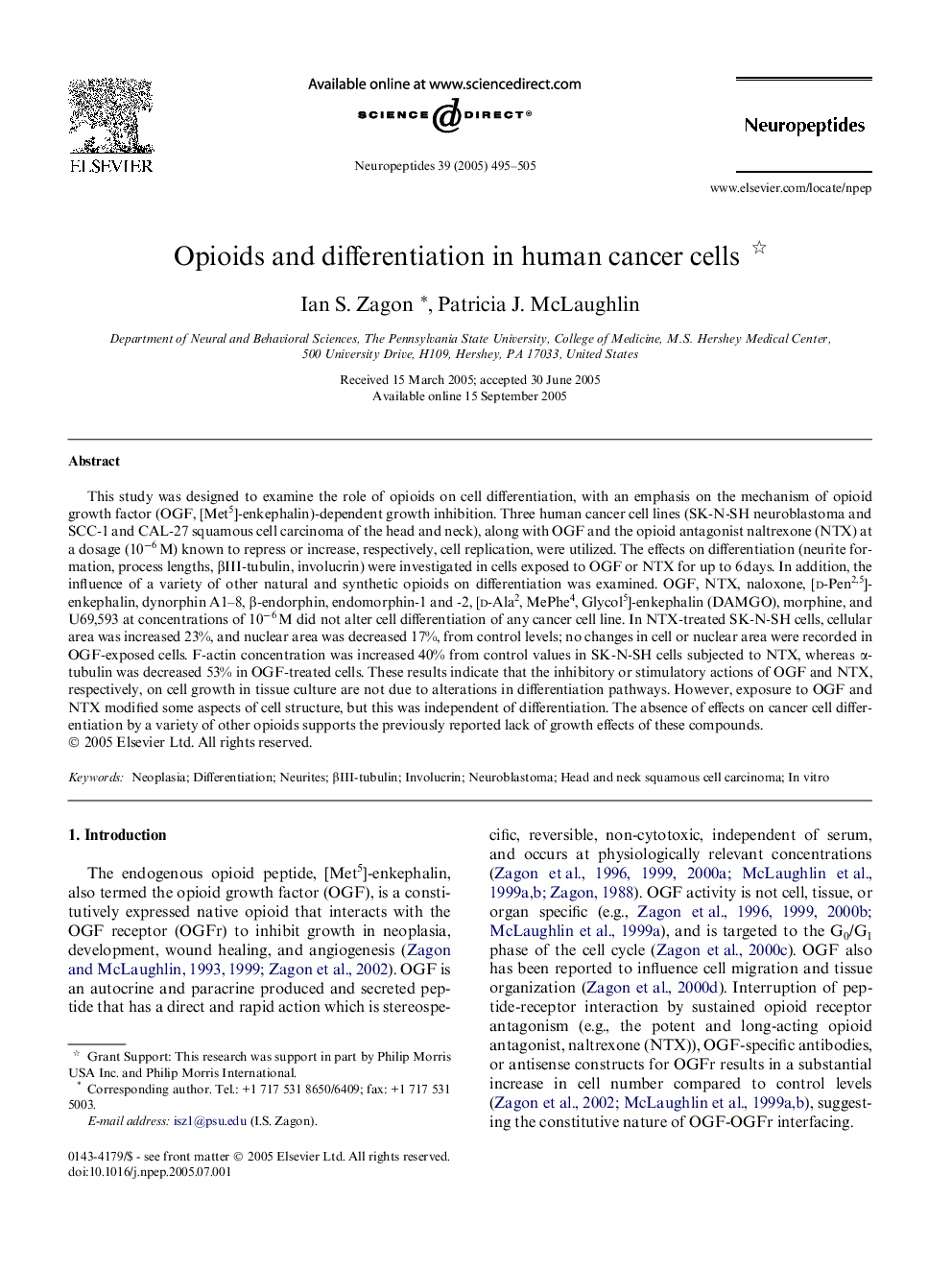| Article ID | Journal | Published Year | Pages | File Type |
|---|---|---|---|---|
| 9118747 | Neuropeptides | 2005 | 11 Pages |
Abstract
This study was designed to examine the role of opioids on cell differentiation, with an emphasis on the mechanism of opioid growth factor (OGF, [Met5]-enkephalin)-dependent growth inhibition. Three human cancer cell lines (SK-N-SH neuroblastoma and SCC-1 and CAL-27 squamous cell carcinoma of the head and neck), along with OGF and the opioid antagonist naltrexone (NTX) at a dosage (10â6 M) known to repress or increase, respectively, cell replication, were utilized. The effects on differentiation (neurite formation, process lengths, βIII-tubulin, involucrin) were investigated in cells exposed to OGF or NTX for up to 6 days. In addition, the influence of a variety of other natural and synthetic opioids on differentiation was examined. OGF, NTX, naloxone, [d-Pen2,5]-enkephalin, dynorphin A1-8, β-endorphin, endomorphin-1 and -2, [d-Ala2, MePhe4, Glycol5]-enkephalin (DAMGO), morphine, and U69,593 at concentrations of 10â6 M did not alter cell differentiation of any cancer cell line. In NTX-treated SK-N-SH cells, cellular area was increased 23%, and nuclear area was decreased 17%, from control levels; no changes in cell or nuclear area were recorded in OGF-exposed cells. F-actin concentration was increased 40% from control values in SK-N-SH cells subjected to NTX, whereas α-tubulin was decreased 53% in OGF-treated cells. These results indicate that the inhibitory or stimulatory actions of OGF and NTX, respectively, on cell growth in tissue culture are not due to alterations in differentiation pathways. However, exposure to OGF and NTX modified some aspects of cell structure, but this was independent of differentiation. The absence of effects on cancer cell differentiation by a variety of other opioids supports the previously reported lack of growth effects of these compounds.
Keywords
Related Topics
Life Sciences
Biochemistry, Genetics and Molecular Biology
Endocrinology
Authors
Ian S. Zagon, Patricia J. McLaughlin,
